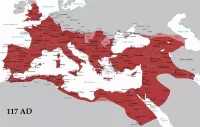A schism is a division or separation between people, typically within an organization, movement, or religious group. It often refers to a split within a religious body, like the Great East-West Schism, but can also describe divisions in non-religious contexts, such as between individuals in a friendship or romantic relationship.
1923: Fall of the Ottoman Empire
Following the fall of the Ottoman Empire in 1923, there hasn't been a widely recognized Caliph within Sunni Islam. This event marked a significant turning point in the history of the Caliphate, which had transitioned from a democratically elected position to a hereditary dynastic rule after the first four Rightly Guided Caliphs.
1983: Code of Canon Law
The 1983 Code of Canon Law codified that within the Roman Catholic Church, an act of schism, similar to apostasy or heresy, automatically results in excommunication for the individual. This penalty aims to be corrective, seeking to ultimately restore unity.
2004: Schism between Patriarch Bartholomew I of Constantinople and Archbishop Christodoulos of Athens
In 2004, a schism, a break of communion, occurred between Patriarch Bartholomew I of Constantinople and Archbishop Christodoulos of Athens. This event highlighted that such breaks are not always about doctrinal differences, further illustrating the distinction between heresy (rejecting essential doctrines) and schism (rejecting communion with Church authorities).
2018: Moscow-Constantinople Schism
In 2018, a significant schism occurred within Eastern Orthodoxy. This division arose between the Ecumenical Patriarchate of Constantinople, the primatial See of Eastern Orthodoxy, and the Russian Orthodox Church. The controversy stemmed from Constantinople's decision to grant autocephaly, or independence, to the Orthodox Church of Ukraine.
Mentioned in this timeline
Ukraine is a country in Eastern Europe the second-largest on...

The Catholic Church the largest Christian church globally with over...

An empire is a political structure consisting of a dominant...

Moscow is the capital and largest city of Russia located...
Trending

47 minutes ago The Highwomen Return: Carlile, Crow, Judd, and Spencer Reunite for Canyon Performances.

47 minutes ago Raphael Veiga's game impresses fans; Adapts to Mexico after leaving Palmeiras.
48 minutes ago Jalen Williams Injury Scare: Thunder Re-evaluating Hamstring After All-Star Break
3 months ago Titanic Passenger's Gold Pocket Watch Anticipated to Break Auction Records, Selling for Millions.

48 minutes ago Armando 'Hormiga' González's Goal and Missed Opportunity in Chivas vs. América Clash

2 hours ago Jacob Elordi's 'Wuthering Heights' film sparks debate with cringe press tour and changed ending.
Popular

Kid Rock born Robert James Ritchie is an American musician...

Pam Bondi is an American attorney lobbyist and politician currently...
Randall Adam Fine is an American politician a Republican who...

Barack Obama the th U S President - was the...
The Winter Olympic Games a major international multi-sport event held...

XXXTentacion born Jahseh Dwayne Ricardo Onfroy was a controversial yet...